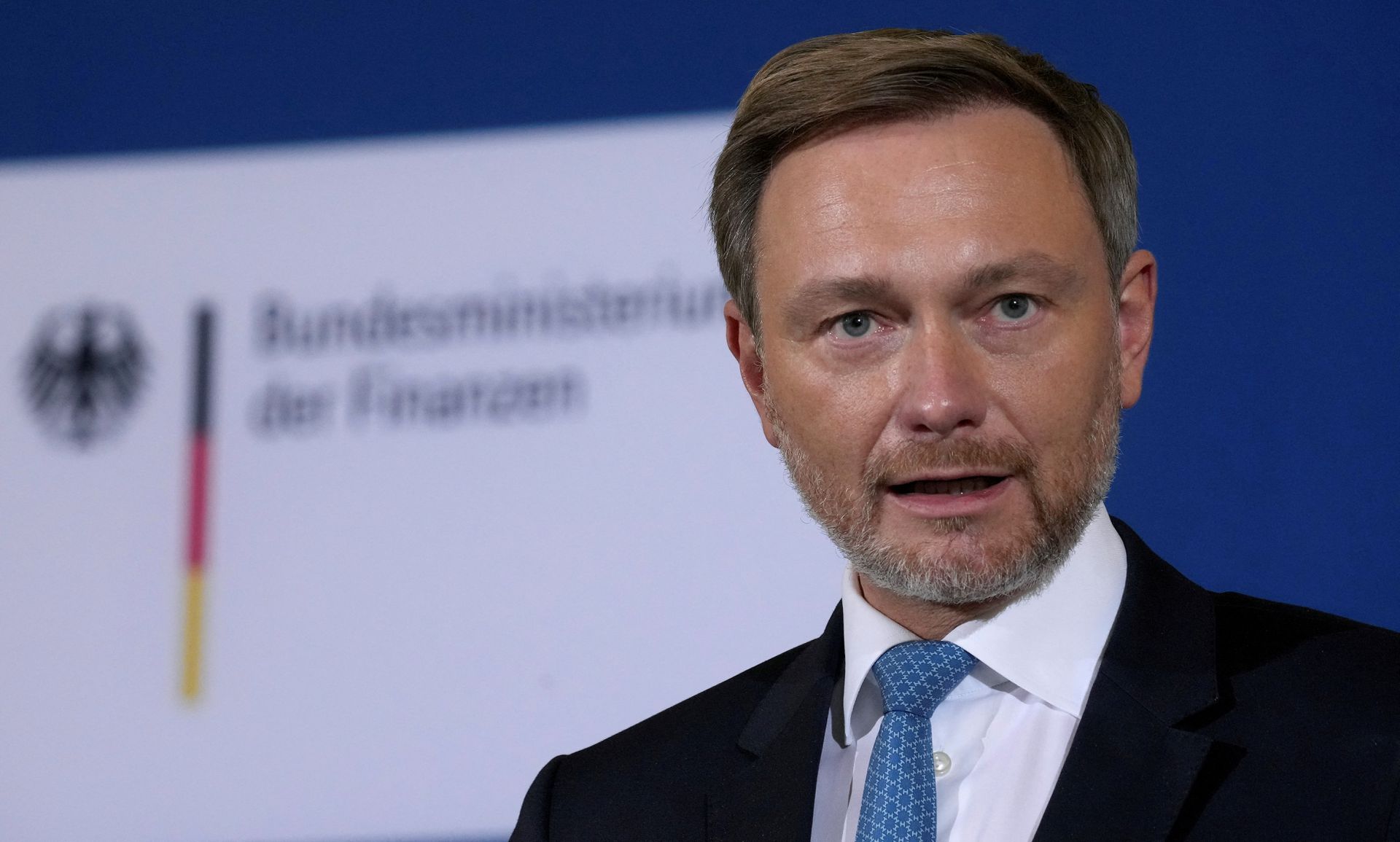A surprise invitation to take “new steps” on post-Brexit commercial relations with the European Union (EU) was sent by the German finance minister to the UK.
Christian Lindner stated: “If you want to intensify your trade relationship with the EU – call us!” in a BBC interview.
According to a government spokesman, the UK was welcoming “new opportunities” from all around the world.
The German economy and energy supply are still robust, according to Mr. Lindner.
He is the head of the liberal party in Germany, which is a component of the government coalition headed by Chancellor Olaf Scholz’s center-left SPD.
At the fringes of the annual meetings of the World Bank and IMF in Marrakech, Mr. Lindner announced that the UK was extended a “standing invitation” to participate in future negotiations aimed at removing trade barriers, or “obstacles in daily business life” that have emerged.
“Since Brexit, German corporations face new challenges in their daily lives… “I don’t believe Brexit is helping [the] United Kingdom,” he said to BBC News.
“We really appreciate the United Kingdom and its values, its people… and I would really, really appreciate it if we can intensify [the trade relationship] again,” he stated.
German exports of commodities to the United Kingdom decreased by 14.1% in 2022 compared to 2016, as reported by the German Chamber of Industry and Commerce.
The UK dropped from third to eighth place among major export partners. When trade is taken into account, the UK is no longer among Germany’s top 10 trading partners.
Since Brexit, the value of car exports from the EU to the UK has decreased by €10 billion (£8.6 billion), almost halving in quantity.
Industry in Germany and the UK has voiced complaints about excessive red tape related to worker travel as well as goods exports.
Tariffs on the trade of certain electric vehicles, which are not covered by the EU’s post-Brexit Trade and Co-operation Agreement, may be one of the most immediate new trade barriers.
Mr. Lindner said that the UK is now a third party country when asked if he could assist in resolving the problem, which is also a worry for German automakers.
Any nation outside the EU is referred to here, specifically any nation outside the single market and customs union, two of the EU’s economic institutions.
Whether or whether there is a trade agreement, businesses in a third nation must complete customs declarations, for instance, when they import into and export from the EU.
“Therefore, you are invited… in the event that [the] United Kingdom chooses to pursue a special relationship with the European Union and our single market,” stated Mr. Lindner. However, the UK has currently chosen to go its own way, which is why there are these challenges in day-to-day living. I’m sorry.
It is anticipated that a tariff decision will be made before year’s end.
In Morocco, Mr. Lindner also had meetings with Chancellor Jeremy Hunt, his colleague from the UK.
Discussions on cutting red tape after Brexit may be considered a byproduct of the improved relations between the UK and the EU following the prime minister’s Windsor Agreement on trade regulations pertaining to Northern Ireland.
Chancellor Scholz and Sir Keir Starmer, the head of the Labour Party, are believed to have cultivated a tight working relationship. Starmer now publicly supports renegotiating the Brexit agreement to make it workable.
The post-Brexit agreement is slated to be reviewed in 2026, but Mr. Lindner’s suggestion implies that Germany is prepared to proceed sooner.
“The Trade and Cooperation Agreement is the largest zero-tariff, zero-quota free trade agreement in the world,” a Foreign Office spokesman stated. It provides the UK with market access in important service areas and creates new global business prospects for UK companies.”
The EU and the UK have “publicly committed” to exploiting the benefits of that accord, they continued.
Regarding the German economy more generally, Mr. Lindner disagreed that it was in poor condition.
“The German economy proved its resilience,” he stated.
Due to the effects of the spike in petrol prices and the Russian supply embargo following the invasion of Ukraine, Germany experienced a recession earlier this year.
However, he claimed that Germany could reassure its allies in Europe that it has “solved the problem” of Russian gas imports by diversifying its energy sources, stockpiling gas and filling up its gas reserves.

